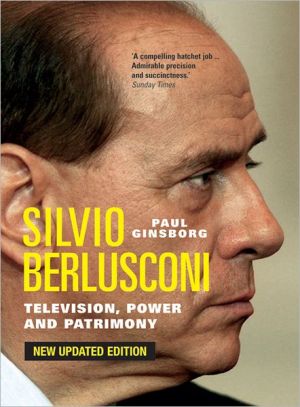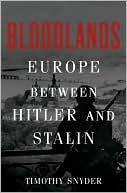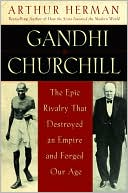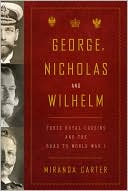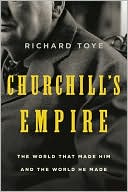Silvio Berlusconi: Television, Power and Patrimony
Silvio Berlusconi, a self-made man with a taste for luxurious living, owner of a huge television empire and the politician who likened a German MEP to a Nazi concentration camp guard—small wonder that much of democratic Europe and America has responded with considerable dismay and disdain to his governance of Italy.\ Paul Ginsborg, contemporary Italy's foremost historian, explains here why we should take Berlusconi seriously. His new book combines historical narrative–Berlusconi's childhood...
Search in google:
This succinct and lucid account is a history of Mr. Berlusconi's trajectory to power and an analysis of how his business interests ... and his privatization ideologies form a coherent project for political and cultural dominance. The New York Times - Ruth Ben-Ghiat In his book "Silvio Berlusconi: Television, Power and Patrimony" Mr. Ginsborg argues that the unprecedented concentration of power Mr. Berlusconi enjoys because of his combination of political and media control makes him a distinct threat to Italian democracy. Mr. Ginsborg's succinct and lucid account is a history of Mr. Berlusconi's trajectory to power and an analysis of how his business interests (which include a near-monopoly of commercial television, publishing and advertising empires, and soccer team ownership) and his privatization ideologies form a coherent project for political and cultural dominance.
AcknowledgementsixGlossaryxiList of Presidents of the Council of MinistersxviiPrologue11Buildings112The Making of a Television Empire283Into Politics574Right and Left: 1996-2001815Berlusconi's Project1026In Power1327Resistances162Postscript175Index185
\ Ruth Ben-GhiatIn his book "Silvio Berlusconi: Television, Power and Patrimony" Mr. Ginsborg argues that the unprecedented concentration of power Mr. Berlusconi enjoys because of his combination of political and media control makes him a distinct threat to Italian democracy. Mr. Ginsborg's succinct and lucid account is a history of Mr. Berlusconi's trajectory to power and an analysis of how his business interests (which include a near-monopoly of commercial television, publishing and advertising empires, and soccer team ownership) and his privatization ideologies form a coherent project for political and cultural dominance.\ — The New York Times\ \ \ \ \ Publishers WeeklyHaving had the misfortune of more than 50 governments in the postwar era, Italy is often seen as the politically bumbling least of the great powers, thus obscuring the significance of its current prime minister. With his newest volume, Ginsborg offers an excellent exegesis of the Berlusconi phenomenon. Ginsborg, who teaches history at the University of Florence, is also the author of analyses of postwar Italian history and society, A History of Contemporary Italy and Italy and Its Discontents. Here he does readers a service in pointing out that the Berlusconi phenomenon is not only unprecedented but also a mortal threat to democracy. Ginsborg's short book proceeds chronologically from Berlusconi's shadowy beginnings in the Milan construction business to his leap into television. As Ginsborg convincingly demonstrates, it was Berlusconi's revolutionary rethinking of the staid medium in the 1980s that laid the base for his political trajectory. Most brilliant is chapter five, "Berlusconi's Project," where Ginsborg lays bare the political and theoretical underpinnings of what some might call a more benign form of fascism. A concluding chapter examines the possibility and methods of resisting such a regime. This volume offers a succinct explanation of contemporary Italy by a man who has been in the forefront of a new movement, not formally allied to any political party, to restore and reinvigorate democracy in that country. (June) Copyright 2004 Reed Business Information.\ \ \ Foreign AffairsGinsborg, a distinguished historian of contemporary Italy, has taken on with vigor and indignation the Italian prime minister and the danger he represents to democracy. Ginsborg examines in detail how Berlusconi created his television empire, making Italy the only democracy in which "commercial television developed under the almost complete control of a single individual." Berlusconi blended an appeal for "negative liberty"-free enterprise at the state's expense-and a media market characterized by "limited and conformist cultural frameworks" and "insatiable acquisitive tendencies to build a TV empire" that is "a system of absolute conformity" and offers an ideal of upwardly mobile families surrounded by commodities and devoid of any unselfish feeling. Ginsborg also explores the difference between Berlusconi's conceptions and fascism (whose evils Berlusconi downplays). Underlying this discussion is a clear and eloquent concern for Italy's direction: Ginsborg deplores the weak resistance of the Italian president and the shakiness of the left-wing coalition and warns that Italy's next national elections, in 2006, will have massive consequences.\ \
